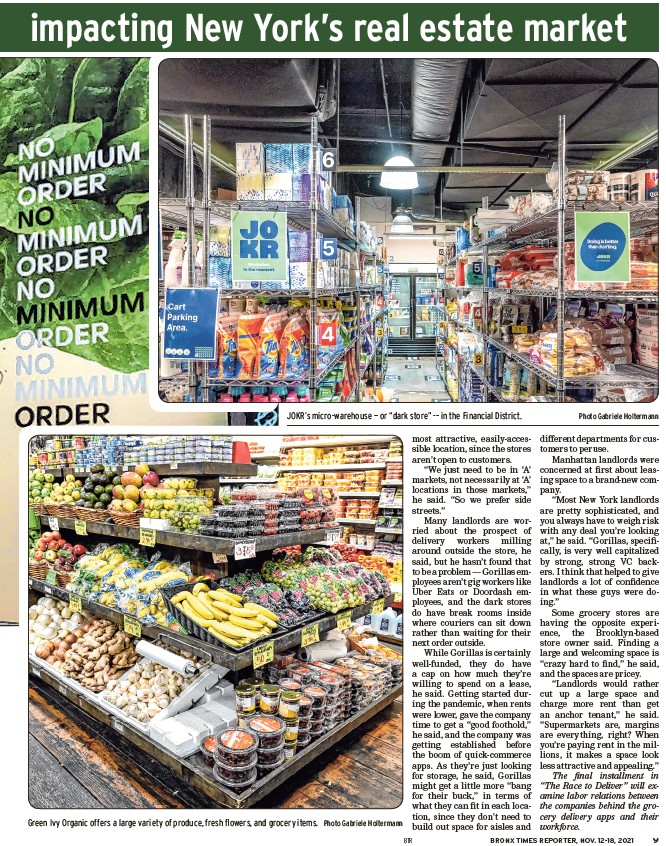
impacting New York’s real estate market
JOKR’s micro-warehouse — or “dark store” -– in the Financial District. Photo Gabriele Holtermann
most attractive, easily-accessible
location, since the stores
aren’t open to customers.
“We just need to be in ‘A’
markets, not necessarily at ‘A’
locations in those markets,”
he said. “So we prefer side
streets.”
Many landlords are worried
about the prospect of
delivery workers milling
around outside the store, he
said, but he hasn’t found that
to be a problem — Gorillas employees
aren’t gig workers like
Uber Eats or Doordash employees,
and the dark stores
do have break rooms inside
where couriers can sit down
rather than waiting for their
next order outside.
While Gorillas is certainly
well-funded, they do have
a cap on how much they’re
willing to spend on a lease,
he said. Getting started during
the pandemic, when rents
were lower, gave the company
time to get a “good foothold,”
he said, and the company was
getting established before
the boom of quick-commerce
apps. As they’re just looking
for storage, he said, Gorillas
might get a little more “bang
for their buck,” in terms of
what they can fi t in each location,
since they don’t need to
build out space for aisles and
different departments for customers
to peruse.
Manhattan landlords were
concerned at fi rst about leasing
space to a brand-new company.
“Most New York landlords
are pretty sophisticated, and
you always have to weigh risk
with any deal you’re looking
at,” he said. “Gorillas, specifi -
cally, is very well capitalized
by strong, strong VC backers.
I think that helped to give
landlords a lot of confi dence
in what these guys were doing.”
Some grocery stores are
having the opposite experience,
the Brooklyn-based
store owner said. Finding a
large and welcoming space is
“crazy hard to fi nd,” he said,
and the spaces are pricey.
“Landlords would rather
cut up a large space and
charge more rent than get
an anchor tenant,” he said.
“Supermarkets are, margins
are everything, right? When
you’re paying rent in the millions,
it makes a space look
less attractive and appealing.”
The fi nal installment in
“The Race to Deliver” will examine
labor relations between
the companies behind the grocery
delivery apps and their
workforce.
BRONX TIMES REPORTER, N BTR OV. 12-18, 2021 9
Green Ivy Organic offers a large variety of produce, fresh fl owers, and grocery items. Photo Gabriele Holtermann